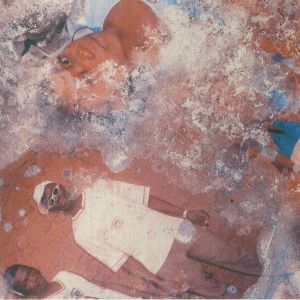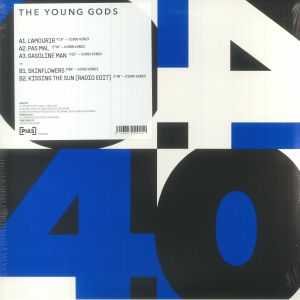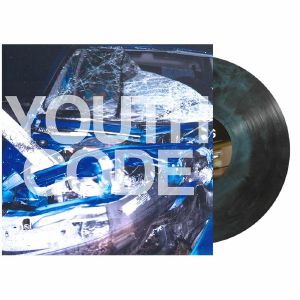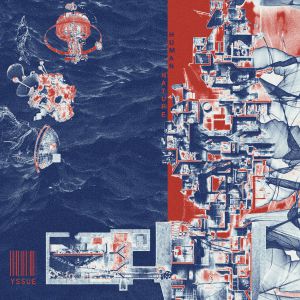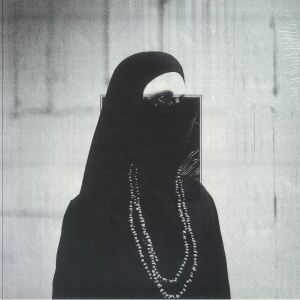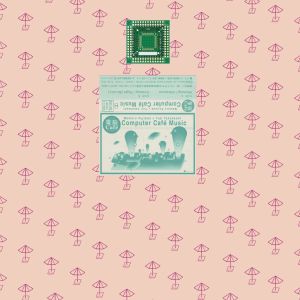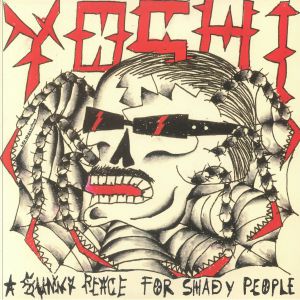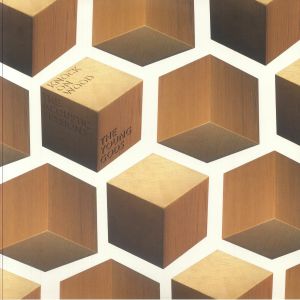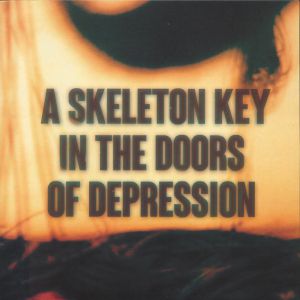Back catalogue: Industrial/Noise
Juno's full catalogue of Industrial/Noise
Singles
Nyagblodi (hand-stamped 7" limited to 100 copies)
Cat: LV 09. Rel: 05 Dec 22
Review: This 7" from Yao Bobby & Simon Grab is as esoteric as it gets. If you don't like noise, you won't like this, it's that simple. The two tracks are taken from their recent album 'Wum' on LAVALAVA. It is some of their most abrasive and confrontational music to date. 'Nyagblodi' is an attack on corrupt African politicians with a loud, guttural voice and frazzled synth over heavily distorted drums. On the flip, 'Church' has a broken beat rhythm, hardcore industrial texture and more powerful vocal chants. These are two hard-as-nails tunes with a powerful message.
… Read morein stock $9.47
in stock $9.60
Yours With Malice (sky blue & black galaxy vinyl 12" + insert + MP3 download code in spot-carnished sleeve)
Cat: SUM 3452. Rel: 05 Jun 25
in stock $26.29
Review: A genre-defying exploration of industrial, noise and breakbeat influences. With a strong vocal presence and a deep understanding of break-based rhythms, YSSUE creates a unique sonic landscape that challenges conventions. Side-1 opens with 'Count 7/8', blending acoustic and synthetic sounds in a way that feels both experimental and grounded. The track's rhythmic complexity and textural depth set the tone for the rest of the album. 'Wherever' follows, merging jungle breakbeats with industrial intensity, while maintaining a catchy, accessible edge that will appeal to fans of both genres. The title track, 'Human Nature', stands out with its gritty, downtempo atmosphere. Reminiscent of Massive Attack's Mezzanine, the track's production is dark and atmospheric, layering dub elements with a subtle, edgy intensity that captures the essence of the human condition. Side-2 opens with 'No Cops In Paradise', where dub meets breakcore in a clash of electronics, creating a chaotic yet controlled rhythm. 'Hefty Dub' closes the album with a tribute to dub, offering a deep, immersive groove that wraps up the journey with a satisfying, bass-heavy finish. Human Nature is a bold, boundary-pushing record that successfully fuses disparate influences into something entirely fresh.
… Read moreGespielt von: Alexis Le-Tan
in stock $17.52
in stock $25.15
Alben
Music For Cyber Cafe (LP + insert)
Cat: EMC 019LP. Rel: 13 Jun 24
Gespielt von: Juno Recommends Experimental
in stock $28.54
Review: It's not easy trying to pin down Yoshi, the Italian producer. Info is thin on the ground but we do know that parts of A Sunny Place for Shady People are clearly inspired, at least in part, by the legendary Ryuichi Sakamoto and other Japanese digital pop moguls, A Sunny Place is as exploratory and avant garde as it is universal, and steeped in a kind of authenticity that means it could quite possibly have been made at any point since the mid-1980s. A noteworthy achievement and a fantastic, instantly replay-able album.
… Read more in stock $35.03
Cat: 62373. Rel: 03 Mar 25
Review: Originally released in 2008, the Swiss industrial rock pioneers have reimagined their past material with instruments you'd likely find people tapping away at around a fire in Glastonbury - it's a far cry from the avant-rock high-voltage set up we're used to seeing with them. Nevertheless, they pull it off brilliantly. On 'Our House' they marry the Hang with unhurried arpeggio picking that sounds like a homage to the original Spanish guitar. 'I'm The Drug' takes a hypnotic, desert-rock approach and is adorned with jaw-dropping lead guitar runs. With this album a celebration of the acoustic guitar, it's fitting that they pay tribute to one of the all-time gods of the instrument: Richie Havens. They do justice and then some to his iconic cut 'Freedom'. A track that Havens famously performed at The World Says No To War in Iraq demo in New York City in 2003. The raw delivery that The Young Gods muster with their cover shows they have sincere affinity with said legend and are truly commanding of the stage even with more humble gear.
… Read more in stock $42.10
A Skeleton Key In The Doors Of Depression (limited LP + insert)
Cat: YC 001V. Rel: 01 Jan 90
in stock $32.50

 USD
USD





